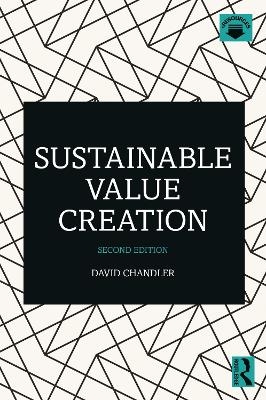
Sustainable Value Creation
Routledge (Verlag)
978-0-367-85982-4 (ISBN)
The goal of this book is to define Sustainable Value Creation in terms of a set of principles that differentiate it from existing definitions of CSR, and from related concepts such as sustainability and business ethics. To internalize these ten principles is to understand how the firm can respond to stakeholder needs to optimize value creation over the medium to long term.
Ultimately, this second edition book aims to reform both business practice and business education. By building a theory that redefines CSR as central to the value creation process, the ten principles of Sustainable Value Creation redefine how firms approach each of their operational functions, but also how these subjects should be taught in universities worldwide. As such, this book will hopefully be of value to instructors as a complement to their teaching, students as a guide in their education, and managers as a framework to help them respond to the complex, dynamic context that they are expected to navigate every day.
This book is a manifesto for success in today’s complex, dynamic business environment. The book is designed as an easy-to-digest, critical introductory text to CSR. With supporting online teaching resources, it is aimed primarily at the MBA and Executive MBA market, and for CSR, sustainability, and business ethics courses taught by instructors skeptical of existing definitions and organizing principles of CSR, sustainability, or business ethics.
David Chandler is Associate Professor of Management at the University of Colorado Denver Business School. His research focuses on the dynamic interface between the firm and its institutional environment and has been published widely. Additional related publications include the textbook Strategic Corporate Social Responsibility: Sustainable Value Creation (5th edition, 2020).
Foreword
Acknowledgments *
Introduction: Corporate Social Responsibility
Principle 1: Business is social progress
Principle 2: Shareholders do not own the firm
Principle 3: Prioritizing competing stakeholder interests is difficult
Principle 4: CSR is a stakeholder responsibility
Principle 5: Market-based solutions are optimal
Principle 6: Profit = total value
Principle 7: The free market is not free
Principle 8: Only business can save the planet
Principle 9: Value creation is not a choice
Principle 10: The business of business is business
Conclusion: Sustainable Value Creation
About the author
Notes
| Erscheinungsdatum | 04.08.2020 |
|---|---|
| Verlagsort | London |
| Sprache | englisch |
| Maße | 156 x 234 mm |
| Gewicht | 217 g |
| Themenwelt | Sozialwissenschaften ► Soziologie ► Mikrosoziologie |
| Technik ► Umwelttechnik / Biotechnologie | |
| Wirtschaft ► Betriebswirtschaft / Management ► Marketing / Vertrieb | |
| Wirtschaft ► Betriebswirtschaft / Management ► Unternehmensführung / Management | |
| Wirtschaft ► Volkswirtschaftslehre | |
| ISBN-10 | 0-367-85982-3 / 0367859823 |
| ISBN-13 | 978-0-367-85982-4 / 9780367859824 |
| Zustand | Neuware |
| Haben Sie eine Frage zum Produkt? |
aus dem Bereich


